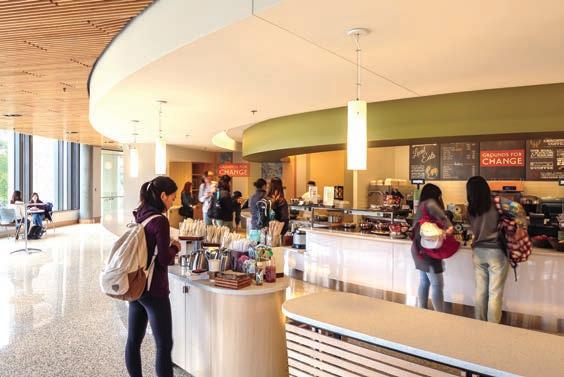
3 minute read
Living in St. Louis on a Budget
St. Louis is consistently ranked among cities with the lowest cost of living. In addition to the city’s abundant housing, there are countless free attractions and activities to support your social world outside of the classroom.
Finding your apartment:
Advertisement
Consider Rent, Roommates, Location and Personal Wishes:
As with any city, rent prices vary from neighborhood to neighborhood. Where you live can significantly impact your monthly expenses. We encourage students to find housing that accommodates their price point, transit plan to campus (e.g., proximity to bus routes and light-rail), and personal needs in a community. Within the city’s 79 distinct neighborhoods, there is much to discover. We encourage you to be curious as you find a neighborhood that suits you.
“Incoming students who do not drive should do their best to secure practicums that are accessible by public transit or at a site that has more than one student that you could carpool
Taking advantage of free admission to events throughout the city:
Free Attractions Near Campus:
Contemporary Art Museum
St. Louis Art Museum
St. Louis History Museum
Pulitzer Arts Foundation
St. Louis Zoo
St. Louis Science Center
World Chess Hall of Fame
St. Louis Muny (free seats available on a first-come basis)
St. Louis Symphony performances (discounted tickets available to students)
Free Events in St. Louis:
The region is known for a variety of outdoor and indoor events that make it easy to find something free to see, listen to or do every night. In a typical summer, free events like Shakespeare in the Park, Movies on Art Hill, First Fridays and outdoor concert series have provided dynamic gathering places for our community.
Do I need to bring a car to St. Louis?
Many students decide not to bring a car to campus and rely on transportation services such as the U-Pass, Campus2Home Shuttle and Enterprise Car Share (more info on pages 12-13). Bike or pedestrian commuting can also help you get where you need to be. If you are not planning on bringing a car to campus, we encourage you to look for housing and consider practicum sites that best accommodate commuting via public transit.
Do I need to buy a parking pass?
For those bringing a car and planning to drive to campus, you may consider the necessity of a campus parking pass. While this is a personal decision, there are options available for car commuters outside of higher-price campus parking passes:
Use street parking in the areas around campus. Many free street-parking spaces are a 10-15 minute walk away.
Purchase the relatively low-cost parking pass that allows you to park at a satellite campus about one mile away and take a shuttle to main campus.
Save on-campus parking for select times. Most oncampus parking is free throughout the weekends and after 5:00 pm on weekdays, which makes for a quick walk to your car after evening classes or late-night study sessions.
More information about parking passes will be provided to incoming students in summer.
What is public transit like in St. Louis?
All WashU students receive free and unlimited access to St. Louis’s public transit system, Metro Transit, with their U-Pass. The Danforth campus is served by both the light rail and multiple bus lines, making WashU an easy destination on public transit.
Since St. Louis utilizes a light rail system, it is not as comprehensive as heavy rail (sometimes called rapid transit) systems you may have experienced in cities such as New York City or Chicago. Our light rail network is more comparable to those in Atlanta, Portland and Philadelphia. With few exceptions, Metro Transit buses and trains run on time and offer access to all major destinations within the city.
How do students get to campus?
“To get to WashU, I ride the MetroLink train which stops on both the northwest and northeast corners of campus. If you are going to utilize the train (or any of the Metro system), I suggest that you download the Transit app for updates on delays or service changes. Since I avail myself of the public transportation and the free U-Pass students receive, I don’t really miss having my car on campus.”
—SCOTT MILLAR
“I found living in neighborhoods slightly farther from school is less expensive, so I drive to campus. Instead of paying for a parking pass, I park in Forest Park. The walk to campus is only about 10-15 minutes and there’s always ample parking in the park.”
SARAH KANG
“I usually walk or bike to campus. I’ve also carpooled with classmates who live near me and in exchange, I help pay their gas or buy them coffee!”
ALLI GILLESPIE



